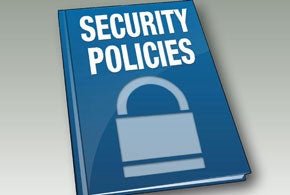
When Executives Ignore Security Policies
 When Executives Ignore Security Policies
When Executives Ignore Security Policies
Although the majority of IT and business leaders believe their job could be at stake over a security breach, many continue to display questionable security habits.
 IT Security Is a Top Spending Priority
IT Security Is a Top Spending Priority
87% of respondents expect increased investment in security this year.
 Insiders Pose the Greatest Threat
Insiders Pose the Greatest Threat
46% of IT managers believe that employees or insiders represent the greatest security risk to organizations.
 Security Protocols Are Disregarded
Security Protocols Are Disregarded
On average, 33% of all security protocols are not followed by staff.
 High Number of Security Breaches
High Number of Security Breaches
38% of respondents experienced data breaches during the last year. One factor for this number could be that one-third of all staff ignore security protocols.
 Brunt of Security Responsibility
Brunt of Security Responsibility
78% of respondents believe IT managers are primarily responsible for their organization’s security.
 The Penalty for Security Breaches
The Penalty for Security Breaches
65% of IT decision-makers believe they are likely to lose their job in the event of a security breach.
 Age Matters
Age Matters
38% of those ages 18-44, compared to 25% of those over age 45 report security protocols not being followed.
41% of those 18-44 have hacked their own or another organization, compared to 12% of IT decision-makers over 45.
 Cavalier Attitude Toward Security
Cavalier Attitude Toward Security
89% of those 18-44 say they are sufficiently staffed to provide effective security. 75% of IT decision-makers over 45 believe this. 92% of those 18-44 are confident their organization can contain a breach compared to 79% of those over age 45.